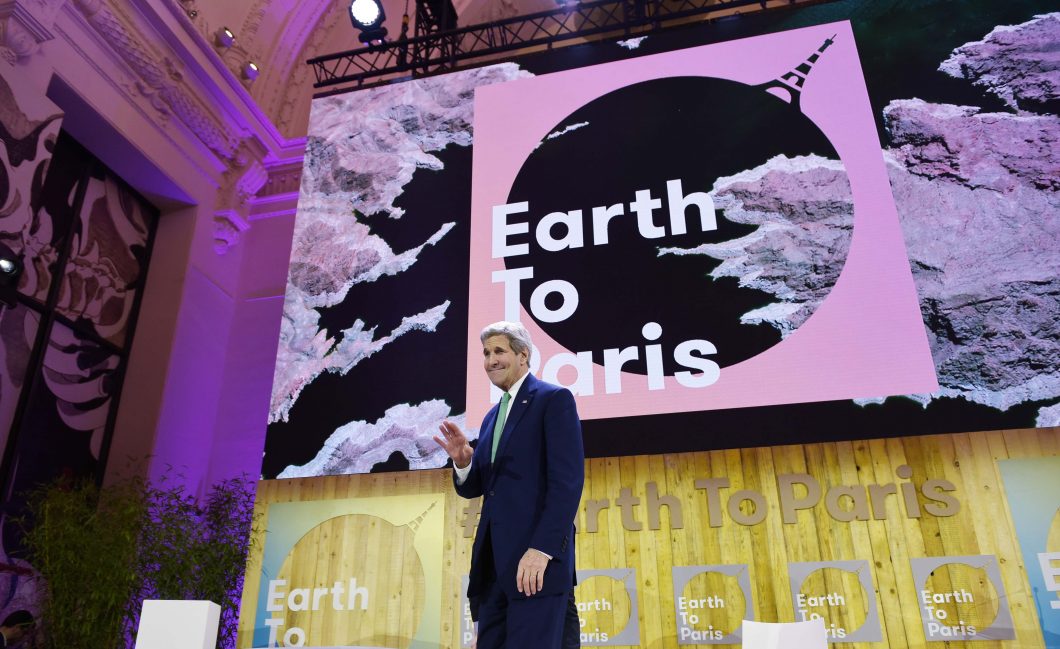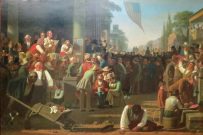A Favored Few Booted and Spurred
Alexis de Tocqueville distills the lesson of the fourth chapter of Democracy in America with his usual epigrammatic power:
The people rule the American political world as God rules the universe. They are the cause and end of all things; everything arises from them and everything is absorbed by them.[1]
What Tocqueville found remarkable in 1830s America was that the “principle of the sovereignty of the people” was neither “hidden” nor “sterile.” Rather, contrary to practice in the rest of the world, “it is recognized by the mores, proclaimed by the laws; it spreads freely and reaches its fullest consequences without obstacles.”
Could an impartial observer say the same today?
While the sovereignty of the people remains an oft-cited dogma of American politics (and, taken to the literal extreme of Tocqueville’s language, can certainly be abused), it is too often “hidden” beneath several layers of paternalistic government mandates and made “sterile” by the ruling class’s apparent imperviousness to the normal means of political accountability. (All too often, elections seem to amount to: heads they win; tails we lose.)
We might see this best in contrasting our experience with that of our 17th to 19th century forebears.
As Tocqueville remarks frequently throughout his masterwork, early American political life was organized from the bottom up. It began in the pre-political covenantal community, the voluntary association of families in a local church. There, a shared understanding of the terms of one’s moral responsibility before God and an intimate common life produced a naturally accountable form of self-government that required (and sought) little, if any, intervention by the civil authorities.
Next most important for early Americans was the town, where, as in the covenantal community, they were immediately involved in settling their common affairs. For the townspeople, as for those in the same family or those worshipping at the same church, the fact that both they and their neighbors would have to live with the consequences of their decisions naturally encouraged circumspection, though it would also give an opening to abuse of unpopular groups or individuals.
Colonial, then state and national, governments, necessitated at least by the presence of external enemies, required a different form of organization. There now had to be, as Madison put it in Federalist 51, “auxiliary precautions” for accountability. Representative assemblies would have to replace the church or town meeting, worsening the danger that those making the decisions might run contrary to the good of the people. Regular elections, constitutional limits on power, and systems of checks and balances would have to be used to reconnect leaders’ private interest to their duty—and would, at least in part, require a vigilant watchfulness on the part of the people to see that these measures were well executed. Here the experience of self-government was less tangible, but no less real, so long as elections mattered and leaders respected the (people-prescribed) limits of their power.
Thus, James Madison’s confident yet conditional assessment of early American political life in Federalist 57:
If it be asked, what is to restrain the House of Representatives from making legal discriminations in favor of themselves and a particular class of the society? I answer: the genius of the whole system; the nature of just and constitutional laws; and above all, the vigilant and manly spirit which actuates the people of America—a spirit which nourishes freedom, and in return is nourished by it.
Let us contrast this with what can be seen in our political life today. Take last week’s climate “deal,” for example. At the top of our now-inverted political hierarchy, President Obama sends Secretary of State John Kerry to Paris, France, to broker a non-binding, non-treaty climate agreement to reduce greenhouse gases. Each of the signatory countries has promised, through “mandatory reporting” on emissions every five years, to help convince all the nations of the world to feel collectively responsible for the earth’s temperature.
Harmless enough, right? How dangerous is a non-binding, non-treaty agreement? But that’s exactly the rub. Essential to the thinking behind the pact is that a powerful transpolitical elite is duty-bound to shape the moral judgments of the multitude within their respective nations. Why trouble yourself attempting to convince the people’s representatives to pass environmental legislation (or the people to elect those who will) when you can turn up the moral heat against those who question the material factors at play in natural climate change?
Unsurprisingly, on the same day that a New York Times editorial called for a “strong follow-up” to the Paris Climate Pact, its news division reported that the Government Accountability Office of the United States government had found the Environmental Protection Agency engaging in “covert propaganda” by using social media at the grassroots level to lobby the American people to support the Obama administration’s clean-water rule.
The Times reports that Thomas Reynolds, the EPA communications director in charge of employing these tactics, is now leading the White House’s communications effort on global warming. More propaganda, presumably, to follow—and more efforts to render the American people a “hidden” and “sterile” force in the climate-change debate.
Despite this, as 2015 gives way to 2016, the American people will once again have the opportunity to rule the American political world—if they will show the “vigilant and manly spirit” Madison spoke of and elect candidates who aim to represent them rather than to school and to dis-empower them.
[1] From Volume I, Part 1, Chapter Four of Democracy in America.


